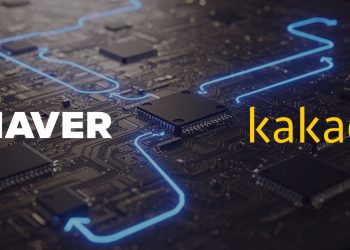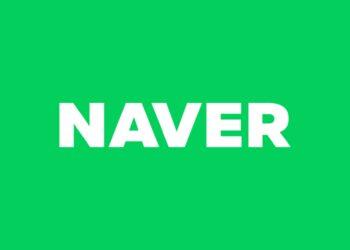Naver founder Lee Hae-jin will reclaim his position as chairman of the board after a seven-year hiatus. His return comes amid growing competition in the AI sector, particularly with the emergence of Chinese startup DeepSeek, which has introduced a model rivaling OpenAI’s technology. Lee’s decision to step back into a leadership role is viewed as a strategic effort to strengthen Naver’s position in the fast-evolving AI industry.
Lee’s reinstatement as an internal director is expected to be approved by Naver’s board on February 7, ahead of the company’s shareholder meeting scheduled for March. Lee stepped down from his role as an internal director in 2018 to focus on Naver’s global business expansion as the company’s global investment officer (GIO).
Lee’s return to Naver’s leadership comes at a crucial time as the company faces mounting pressure from global AI leaders like OpenAI. While Naver has developed its own large language models, HyperCLOVA and the enhanced HyperCLOVA X, it has struggled to gain traction in both performance and market adoption. The rise of DeepSeek, a Chinese AI startup offering a competitive model at a significantly lower cost, has further fueled concerns. To strengthen its AI strategy and remain competitive, Naver has decided to bring Lee back as chairman.
In addition to overseeing Naver’s AI advancements, Lee is expected to accelerate the company’s “Sovereign AI” initiative. This initiative, which Lee has long championed, aims to develop AI models tailored to specific languages and cultures, reducing reliance on global tech leaders. Naver’s efforts to establish this initiative have already seen some success, including collaborations with Nvidia and Saudi Arabia’s SDAIA to create an Arabic language model. With Lee’s leadership, Naver plans to expand this initiative beyond Saudi Arabia to Europe and Southeast Asia.
Under Lee’s guidance, Naver is additionally expected to strengthen its partnerships with major semiconductor players like Nvidia and Intel. These collaborations are vital to enhancing Naver’s AI ecosystem, particularly in the development of the hardware and operating systems necessary for AI processing. As global AI competition heats up, Lee’s leadership is crucial in helping Naver capitalize on the “golden hour” of AI innovation and ensure its long-term success in the market.
Naver’s stock surged 4.8% following news of Lee’s likely return, closing at 229,000 won ($158.10) on February 5, reaching a new 52-week intraday high. Despite Naver’s record-breaking annual revenue, surpassing 10 trillion won ($6.92 billion) for the first time in 2023, the company’s stock has largely remained stagnant in the low 200,000-won range since last year. Lee’s return has sparked renewed optimism among investors, who expect his leadership to drive further growth, particularly in the AI sector and overseas expansion.
Lee’s return also raises expectations of increased collaboration with Naver CEO Choi Soo-yeon. Choi, who is expected to be reappointed after her term expires next month, has overseen the company’s impressive revenue growth. While Choi is expected to continue leading M&As and new business ventures, Lee will leverage his global experience to focus on advancing Naver’s AI strategy and expansion into international markets like Japan.





